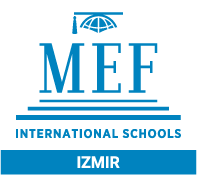The learning of children aged 3 to 5 is described in four strands:
- Independence and interdependence – This strand focuses to a large extent on the children’s personal goals and their relationship with other children
- Communicating – This strand is primarily about developing skills in communication including speaking and listening, reading and writing, early numeracy work and the expressive art
- Exploring – Through this strand the children’s skills in inquiry are developed
- Healthy living – Using the statements within this strand children are encouraged to understand how to look after themselves and each other
To ensure students do not study the same topics, our themes are chosen carefully in Reception 1 and 2 and can include the following: All about me, Food, Clothes, Houses & Homes, Animals, Transportation, Family & Friends, Changes, Let’s get Moving, Up & Away, Let’s Pretend, Plants & Flowers, Shopping, Treasure, and others.
Early Years students also receive specialist lessons, as per table below:
| Specialist Class | Summary |
| Physical Education | Travelling Skills, Balancing Skills, Gross-Motor Manipulative Skills, Fine-Motor Strength and Coordination, Using Equipment, Health and Body Awareness |
| Music | Music Appreciation, Rhythm, Orff, Artists, Singing, Instruments |
| Drama | Role-play, Confidence building, Acting, Feelings and Emotion expression |
| Art and Craft | Fine motor development, Hand eye coordination, Building relationships with materials, colour and shape awareness |
| Library | Book Appreciation, storytelling, Functions of a library |
| BTA Brain Training Activities | Multiple Intelligence Development: Verbal/Linguistic Development, Logical/Mathematical group games and activities, Music and dance, Visual and spatial awareness, body/Kinaesthetic activities, TPR |



